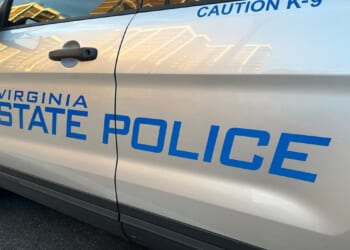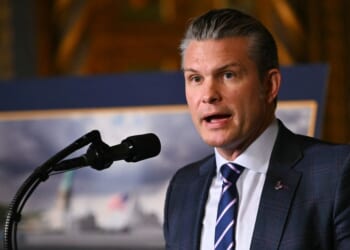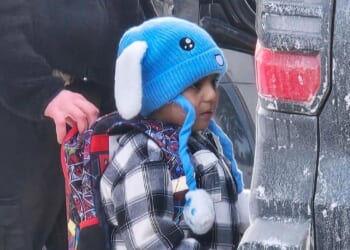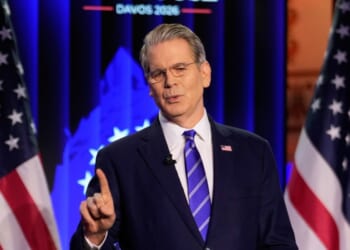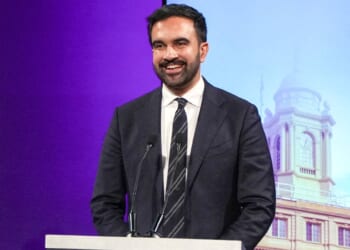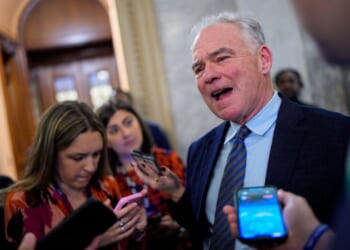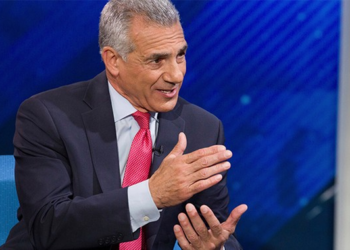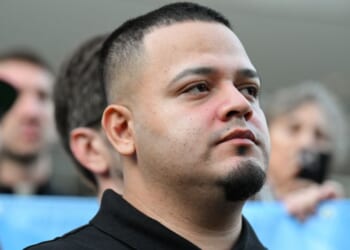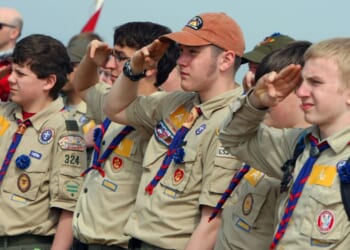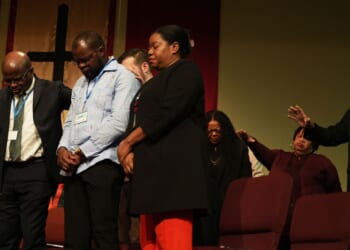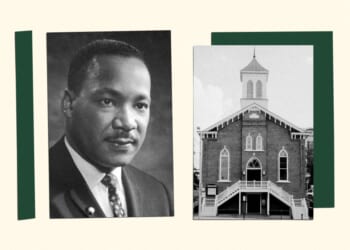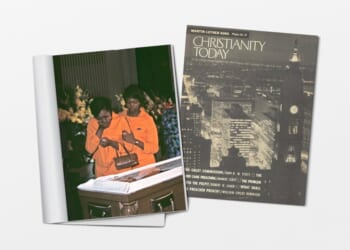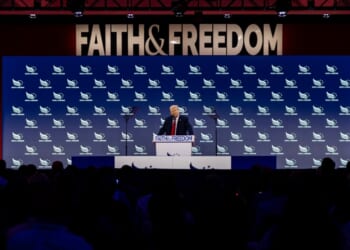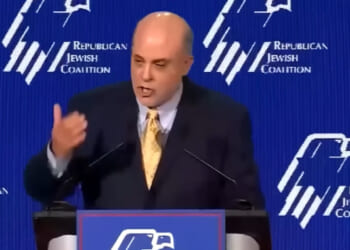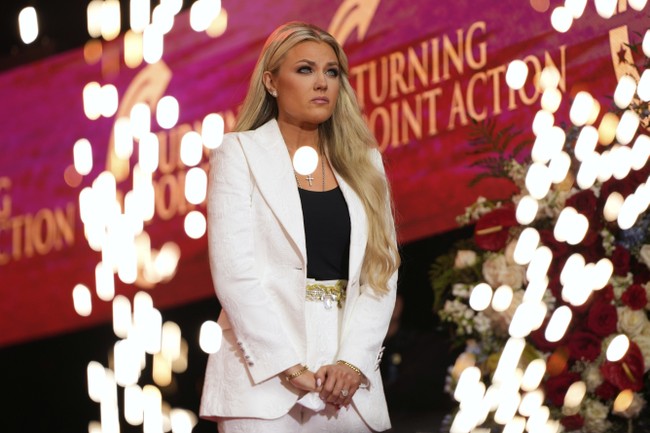
I regret that I was only dimly aware of Charlie Kirk before he was killed. Of course I knew of him; we have a mutual friend in Michael Walsh, and last year Kirk and I were among the contributors to the book Walsh edited, Against the Corporate Media: Forty-two Ways the Press Hates You. And I also knew Kirk was an evangelist for both Christianity and conservatism, but I’ve been a Christian all my life, a Catholic, to be more specific, and I was evangelized into conservatism some 30 years ago by William F. Buckley Jr., this after chancing upon a providentially abandoned copy of National Review during a prolonged delay at O’Hare Airport.
In short, because I was not part of Kirk’s target audience of young people, and because I was already an adherent to his philosophy, I remained incurious about him. It was my loss. Since his death, I’ve watched dozens of videos in which he engaged in his signature college campus debates, taking on all comers with grace and warmth, at all times extolling the virtues of Christianity, conservatism, and the American founding.
It was Mrs. Dunphy who was a true Charlie Kirk fan, and it was she who called me on Sept. 10 to tell me that Kirk had been shot and taken to a hospital. Being yet unaware of Kirk’s condition, I tried to offer hope. I had seen many people survive being shot; after all, why wouldn’t he? It wasn’t long before the awful truth was known: no one could have survived such a wound.
Mrs. Dunphy was deeply troubled by Kirk’s murder. Having so often listened to his radio show and read his writing, she felt a connection with the man who had revealed so much of himself to his audience. I was reminded of what Dennis Prager replies to any fan who, upon meeting him, says, “I feel like I know you.” “You do,” Prager answers.
As the weekend approached, my wife and I talked more and more about Kirk’s murder and its implications. When plans for Sunday’s memorial were announced, my wife said, “I think we should go.” When a close friend in Phoenix offered us lodging for the weekend, the choice was clear.
And so it was that the Dunphy family set off on Saturday for the six-hour drive across the desert in the hope of being admitted to State Farm Stadium the next morning. As requested by Turning Point, the organization Kirk founded, we registered online for the event and were told that information on the memorial would be emailed on Saturday night. Having received no such email by 9 p.m., we went to bed with the plan of rising at 3 a.m. and being at the stadium by 4 a.m. We were awakened at 1 a.m. by text messages from Turning Point instructing us to check our email. Neither of us had received an email, and now we were awake and wondering if any further delay would result in us losing whatever chance we might have of being allowed inside.
As requested, I put on my Sunday best: blue suit, white shirt, red and blue tie, and dress shoes, despite the prospect of spending the next several hours on my feet. We arrived at the stadium around 2 a.m., finding thousands of people already gathering. Lacking any information on where to line up, I asked two police officers for some guidance. One had no answer, the other had an answer that turned out to be incorrect.
We joined an orderly queue on the street bordering the north end of the stadium and spent the next hours talking with those around us. It couldn’t have been a more convivial crowd, with people from all over the country and beyond coming to pay their respects to Kirk. But at about 4:30 a.m., the line began to move. Quickly the orderly queue became something approaching a stampede, with hundreds or even thousands of people (it was hard to tell from the midst of it) rushing into the street and crowding toward the gate, which, I would learn, had been opened for stadium employees to enter but no one else.
In the middle of the throng was a single Glendale P.D. SUV occupied by a sergeant. He stood on the cruiser’s rocker panel and surveyed the sea of people with a look of resignation on his face, as if to say, “Well, I guess we lost control here.”
As indeed they had, for without clear instructions from the authorities, crowds will surge forward when they see others doing so. But it’s worth noting that this lone sergeant, surrounded as he was by so many people, was in absolutely no danger from any of them. In almost any other setting, one can easily imagine the sergeant running for his life while his cruiser was overturned and burned.
At about 6 a.m., the gates were opened, and we began to make our way across the stadium grounds to the security checkpoint. Once again, the crowd-control measures left much to be desired. We were directed to switchback lanes composed at first of rope lines wide enough to accommodate six or seven people across, but as the desert sun and the temperature rose, these narrowed down to metal barriers spaced so as to fit only two or three across. This resulted in some jostling, but at all times the crowd remained respectful, even as some of their number fainted and had to be carried out of line to be attended to by paramedics. In the line near us were parents carrying infants and shepherding toddlers, elderly people using walkers, people in wheelchairs, all of them moving through the line with nary a word of complaint.
It was almost 9 a.m. when we at last cleared security and made the climb to the top level of the stadium to find our seats and see that the musical performers had begun. If someone were to ask me what my favorite Christian music is, I would name works by Handel, Bach, and Beethoven. I am thoroughly ignorant of contemporary Christian music, but as was the case with her admiration of Charlie Kirk himself, my wife enjoys it. She is well acquainted with Brandon Lake, Chris Tomlin, Phil Wickham, Cody Carnes, and Kari Jobe, all of whom performed in advance of the speeches as the stadium filled to capacity.
I have no familiarity with contemporary Christian music, placing me in what I took to be a small minority among those in attendance, but there was something deeply moving and inspiring to see so many people on their feet and joining the performers in joyfully singing the songs, the lyrics of which are, for the most part, drawn straight from the Bible.
With the exception of Tucker Carlson’s, I enjoyed all the speeches. First to address the crowd was Rob McCoy, whom Kirk regarded as his pastor and is perhaps best known for fighting to keep his Thousand Oaks, Calif., church open during the COVID-19 lockdown, when Gavin Newsom and his virus goons upended the Constitution and decreed that people should be free to patronize strip clubs, liquor stores, and marijuana dispensaries but not attend church.
I was impressed with the young men and women of Turning Point, who, in eulogizing Kirk, inspired confidence that, though its founder would be dearly missed, the organization would remain in capable hands.
Especially heartening was Larry Arnn, president of Hillsdale College, who, in his understated but arresting manner, told of meeting a bright but as yet untutored 19-year-old Charlie Kirk. Arnn encouraged him to learn. “Start with the Bible,” he instructed. “Read the classics, study the founding of America.”
And learn Kirk did, all of it.
No discussion of Kirk’s memorial would be complete without the recognition of his widow, Erika, whose poise, dignity, and grace in such unfathomable circumstances were almost beyond belief. Echoing Jesus’ words on the cross, she forgave the man who killed her husband. No quotation here, no description of her remarks, could possibly do her justice. Watch her speech here and prepare to be moved.
Until Sunday, I could scarcely imagine a circumstance in which a speech by President Donald Trump would come as an anticlimax, but that was the case on Sunday. The president was entertaining, as always, but in speaking as he did right after Erika Kirk’s stirring tribute to her husband, he was upstaged.
Do not believe those who claim the memorial was “hate-filled.” Even Stephen Miller, whose speech was, as might be expected, the most bellicose of the day, was not hateful, but rather filled with a righteous, Old Testament anger that comes from seeing his friend killed for daring to speak the truth to those most in need of hearing it. Yes, the Bible teaches us that we must forgive, but it also teaches that those who love the Lord must hate evil.
To those who say the memorial should have offered more effort to seek common ground with Kirk’s ideological opponents, I say this: There is no common ground between Charlie Kirk’s admirers and those who cheered his murder. There is no common ground between Charlie Kirk’s admirers and those who applauded and continue to applaud the Hamas atrocities of Oct. 7, 2023 (and the overlap of these two groups is nearly total). Where there is no common ground, there can only be a hunger for victory. A compromise with evil is at best only slightly less evil.
I was proud to have been there. May God bless Charlie Kirk and all those saddened by his death.
Editor’s Note: Do you enjoy PJ Media’s conservative reporting that takes on the radical left and woke media? Support our work so that we can continue to bring you the truth. Join PJ Media VIP and use the promo code FIGHT to get 60% off your VIP membership!


